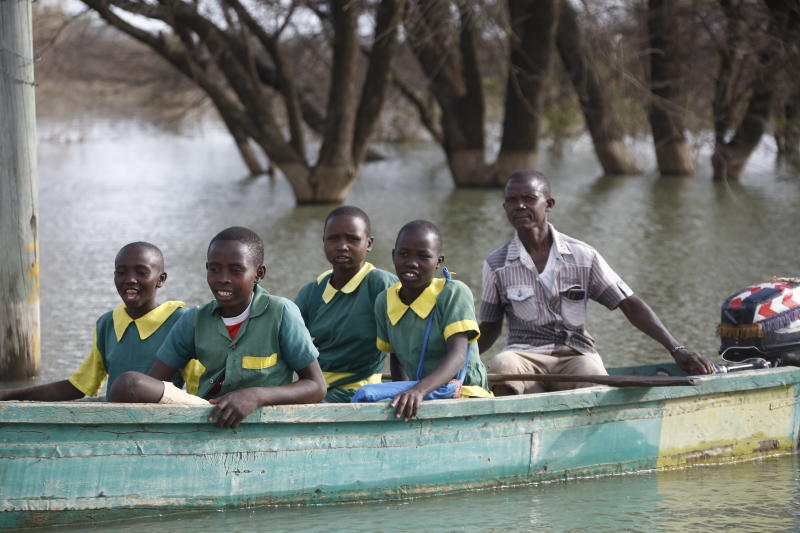×
The Standard e-Paper
Join Thousands Daily

Pupils of Loruk Primary School in Baringo North travel to school using a boat after Lake Baringo swelled last week and closed the usual footpath. [Kipsang Joseph, Standard]
Except for pieces of paper rustled by a breeze behind the classrooms, an unnerving silence hangs over Chemisik Primary School in Tiaty, Baringo County, which is yet to reopen, two weeks later.